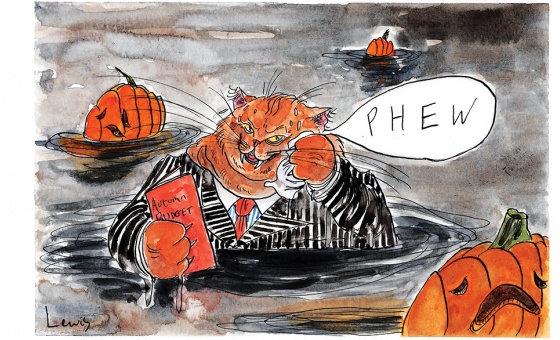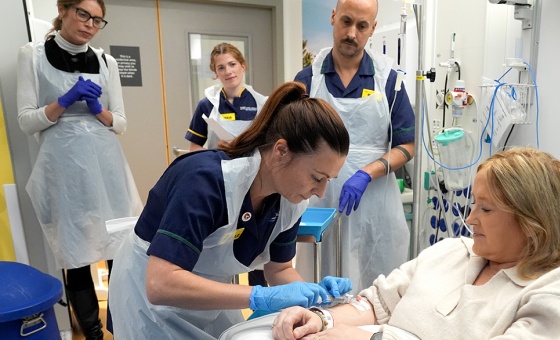This is the last article you can read this month
You can read more article this month
You can read more articles this month
Sorry your limit is up for this month
Reset on:
Please help support the Morning Star by subscribing here
MINISTERS have refused Labour’s call to hand over written advice Prime Minister Rishi Sunak was given about crumbling concrete in schools when he was chancellor.
The Department for Education (DfE) published the long-awaited list of 147 education settings in England so far found to have collapse-prone reinforced autoclaved aerated concrete (Raac).
More than 100 schools were ordered to fully or partially shut buildings before the new academic year due to concerns about Raac.
The list suggests 19 schools in England have had to delay the start of term because of the concrete crisis, and pupils at 24 schools will receive some remote learning because of it, with four schools switching to fully remote learning.
At least 30 schools in Scotland found to contain Raac were also revealed by local councils.
In the Commons today, Labour demanded the publication of evidence sent by the DfE to both Number 10 and the Treasury relating to the crisis.
Mr Sunak previously suggested that he as chancellor he approved 50 schools being rebuilt a year, rejecting an application for 200 to be given the same treatment.
Labour also pushed for the release of all related correspondence ahead of the 2020 and 2021 spending reviews and the 2022 spring and autumn statements to show what advice Mr Sunak was given as chancellor about the need to replace Raac.
But Education Secretary Gillian Keegan told MPs that it would be “inaccurate, incomplete, and inappropriate to disclose the details requested of the sensitive negotiations between His Majesty’s Treasury and individual government departments.”
During Prime Minister’s Questions earlier in the day, Labour leader Sir Keir Starmer claimed that “the cowboys are running the country” as he highlighted how schools now found to have Raac would have been replaced under the last Labour government’s Building Schools for the Future (BSF) programme.
But Mr Sunak said the BSF scheme, scrapped by the coalition government in 2010, would have been “time-consuming and expensive, just like the Labour Party.”
Then education secretary Michael Gove, who took the decision to scrap BSF, has since admitted it was the wrong thing to do.
He defended the government’s handling of Raac: “We make no apology for acting decisively in the face of new information.
“Of the 22,000 schools in England the vast, vast majority won’t be affected.”
Unions have also condemned ministers for axing the BSF programme 13 years ago.
National Education Union general secretary Daniel Kebede said that there would not be any Raac in a single secondary school in England if the programme had continued.
“It has in my opinion been calculated neglect,” he said.
Association of School and College Leaders (ASCL) general secretary Geoff Barton said: “I think the nation’s parents will think this just reinforces a sense that we have got a government that frankly doesn’t care, and hasn’t cared about education for many years.”
He told BBC Radio 4’s Today that there were “all kinds of flaws” with the programme, “but it was saying something important, that the nation’s schools needed to be refurbished.”
Mr Barton added that anxiety levels are “high” among school leaders and parents as a result of the crisis.
He said he has heard of a school chief who reached out directly to a surveyor and paid them £750 to look for Raac on their site for “peace of mind.”
NASUWT general secretary Dr Patrick Roach called for the government to come clean and immediately publish a full list of schools affected by Raac.
“Questions must be asked about why it has taken six days to produce this list of schools and when did the government first receive the advice to raise the risk warning for those schools,” he said.
“Publishing a list without an urgent plan to fix the problem in each and every one of these schools will be of no comfort to the thousands of pupils, parents and school staff whose lives are being impacted by the government’s actions.”
Downing Street declined to say whether the concrete crisis would be resolved by Christmas.










